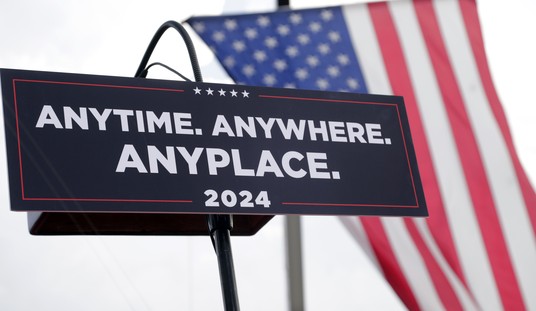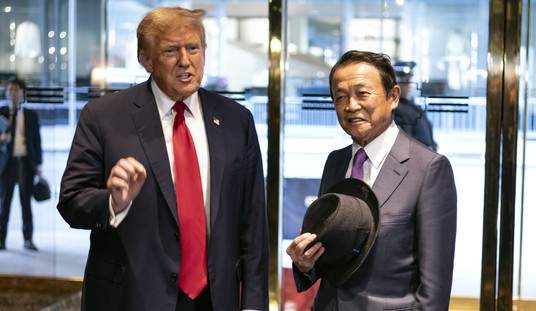A weakened president with a weakened economy comes face to face with the limits of American influence, and Jake Tapper is there to record the gruesome results. I wouldn’t call the trip a total bust, though, for the simple reason that in a world where Chinese power is forever increasing, goodwill junkets to India and the Far East are useful reassurances to important allies. As Krauthammer, cheering the Indo-American partnership, puts it, “It’s not just our inherent affinities – being democratic, English-speaking, free-market and dedicated to the rule of law. It is also the coincidence of our strategic imperatives: We both face the common threat of radical Islam and the more long-term challenge of a rising China.” Don’t overlook the value of The One’s stopover in Indonesia, either. As hard as it is to imagine the world’s largest majority-Muslim country allying itself with the Great Satan, the regional fear of Chinese totalitarians using naval power to dominate rivals may help concentrate their minds. In fact, I recommend this Robert Kaplan op-ed in today’s NYT as a primer on the strategic importance of India and Indonesia to U.S. containment of China:
Indeed, Washington has been making great strides on the public-diplomacy front: a principal benefit of having special envoys to Israel and the Palestinian territories and to Afghanistan and Pakistan is that it has freed Secretary of State Hillary Clinton to make more high-profile trips to East and South Asia, where she has been, in effect, competing all the while with China on the public stage. The president’s trip is one culmination of this effort.
The 20th century saw great, land-centric Army deployments to Europe. George W. Bush unwittingly continued this tendency with great, land-centric deployments to the Middle East, where we became ensnared in intra-Islamic conflict. As President Obama develops his grand strategy for Eurasia, the great step forward would be creating a smaller footprint on land and a bigger one at sea. Navies are very conducive to projecting soft power: they make port visits and guard the global commons, whereas armies invade.
Easing India’s fears about Chinese-built ports in the Indian Ocean as well as Indonesia and its neighbors’ worries about Chinese designs in the South China Sea and Japan and South Korea’s about China’s goal of dominating the islands of the Western Pacific is in each case a matter of warships, not ground troops.
Now all we need to do is find the money for more warships. In the meantime rhetorical hugs will have to do, and The One’s got that covered quite nicely. If only it worked on trade agreements and currency disputes.








Join the conversation as a VIP Member